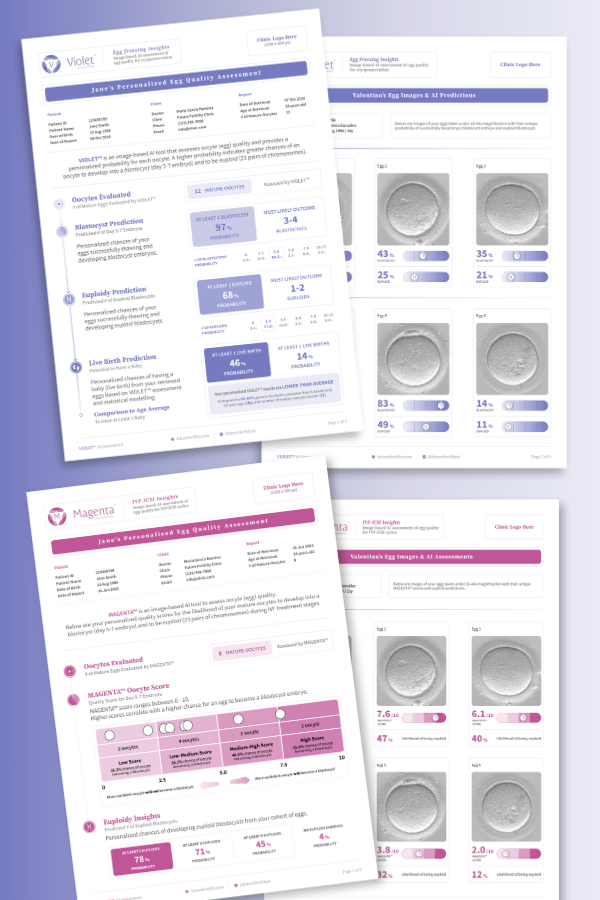Infertility affects 1 in 6 people worldwide, yet it’s still surrounded by silence and misunderstanding. This World Infertility Awareness Month (June), we’re spotlighting the importance of education, early action, and support—because no one should navigate fertility challenges alone.
Infertility Is a Global Issue – You Are Not Alone
Infertility affects people across every region and income levels. Barriers like limited access to care, high treatment costs, and lack of insurance or public healthcare coverage make it even harder for many to seek help.
Beyond the medical and logistical challenges, infertility often carries a heavy emotional burden. Feelings of isolation, shame, and inadequacy are common. In some cultures, infertility is still deeply stigmatized, particularly for women—leaving many afraid to seek help or even talk about their struggles. It’s time to change that narrative and normalize the conversation.
When to Seek Fertility Help
You may have heard common advice like: “You’re still young, don’t worry yet,” or “Try for a year before seeing a doctor.” But fertility isn’t one-size-fits-all—and waiting too long could delay important answers or limit your options.
If you feel like something is off, trust your instincts. Especially if you’re over 35, have irregular cycles, or have been diagnosed with conditions like PCOS or endometriosis, it’s okay to seek help when you think you need it.
And seeking help earlier doesn’t mean rushing into treatment—it means getting clarity about your reproductive health. The more you understand about your body and fertility potential, the more confident and strategic you can be in your planning.
Egg Quality Plays a Key Role in Fertility
Fertility naturally declines with age. Egg quality plays a significant role in this because it directly impacts fertilization, embryo development, and pregnancy outcomes. Research shows:
- The egg is the main driver of embryo quality (source)
- Most chromosomal issues (like aneuploidy) start in the egg, especially with age (source)
Learning about your egg quality can help guide treatment decisions—like whether to freeze eggs, pursue IVF, or plan timelines differently.
How AI Can Help You Learn More About Your Egg Quality
Thanks to advances in reproductive technology, you can now know more about your egg quality than ever before. Future Fertility’s egg quality reports offer personalized insights based on images of your eggs.
Here’s how it works:
- After egg retrieval, images of your oocytes are captured.
- Your egg images are analyzed by our AI-powered software that has gathered data from over 150,000 egg images and learned which features are important for healthy embryo development.
- You receive a personalized report:
These tools can help you and your doctor personalize your treatment plan, reduce uncertainty, and make more confident decisions on your path to parenthood.

Fertility Is Not Only About Eggs
While egg quality plays a dominant role, sperm health matters too—especially for DNA contribution. In fact, Male factor infertility contributes to about 50% of infertility cases. It’s essential to evaluate both partners to get a complete picture of fertility. Fertility is not just a woman’s issue – it is a shared journey.
Questions to Ask Your Fertility Doctor
Talking to a doctor about fertility can feel intimidating or overwhelming, but it’s important to keep yourself informed. By being your own advocate, you’ll be better prepared for what you may face as you grow your family.
Not sure what to ask? Start here:
- What fertility tests should I consider?
- How does egg or sperm quality affect our chances?
- Should I consider egg/sperm freezing now?
- What lifestyle factors might be impacting fertility?
- What are my treatment options if we encounter challenges?
This World Infertility Awareness Month, we want you to know: You are not alone. Your fertility struggles are valid, and there is support and science to help you navigate them.
By understanding your options, seeking help when you need it, and embracing new tools like AI-powered egg quality assessment, you can take meaningful steps toward your family-building goals.
Join our mailing list for dispatches on the future of fertility

